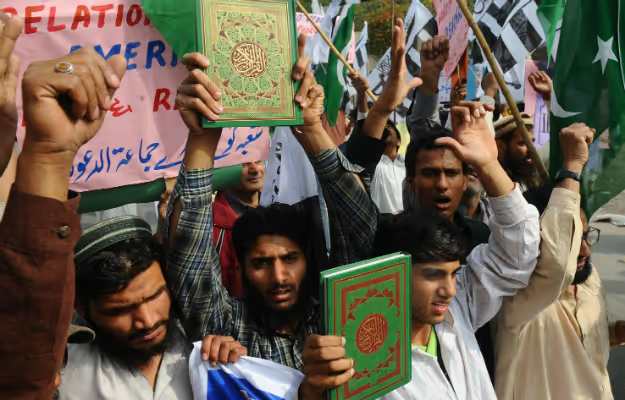Associate Politics Editor's note: Religion is an aspect of the human condition that is both cross-culturally ubiquitous and historically ancient. Many throughout time have turned to religion for answers as to why we are here, what our purpose is, or for guidance on how to live and how to treat others. Modern scientists, however, have begun to flip the inferential lens toward religion itself, seeking to discover why it is that we have religion in the first place, and to explore the possibility that religious belief and practice can be explained with evolutionary theory.
Certain books on the topic have provoked considerable controversy, such as Daniel Dennett's Breaking the Spell and Richard Dawkins' God Delusion. Pascal Boyer's Religion Explained is another important book that has received less popular attention but is a more thorough example of the use of adaptationist theory to explain patterns of religious belief. A recent special issue of Science on Human Conflict featured an article by Scott Atran and Jeremy Ginges, which provides a good overview of current theory and evidence on the evolution of religion, not only from a biological evolutionary perspective, but also from related approaches such as cultural selection.
Obviously many have become particularly interested in the connection between religion and conflict during the last decade, so it is no surprise that some of the research on religion has highlighted its connection to violence directly, or indirectly through the in-group moralizing that can be a by-product of certain belief systems. In this recent Foreign Policy article, Scott Atran reviews much of the science on religion directly, with special attention given to the implications for social and political conflict. The evolution of religion, and the scientific study of religion in general, is a hot topic that readers can expect to see much more of in the coming years.
The era of world struggle between the great secular ideological -isms that began with the French Revolution and lasted through the Cold War (republicanism, anarchism, socialism, fascism, communism, liberalism) is passing on to a religious stage. Across the Middle East and North Africa, religious movements are gaining social and political ground, with election victories by avowedly Islamic parties in Turkey, Palestine, Egypt, Tunisia, and Morocco. As Israel's National Security Council chief, Gen. Yaakov Amidror (a religious man himself), told me on the eve of Tunisia's elections last October, "We expect Islamist parties to soon dominate all governments in the region, from Afghanistan to Morocco, except for Israel."
On a global scale, Protestant evangelical churches (together with Pentacostalists) continue to proliferate, especially in Latin America, but also keep pace with the expansion of fundamentalist Islam in southern Africa and eastern and southern Asia. In Russia, a clear majority of the population remains religious despite decades of forcibly imposed atheism. Even in China, where the government's commission on atheism has the Sisyphean job of making that country religion-free, religious agitation is on the rise. And in the United States, a majority says it wants less religion in politics, but an equal majority still will not vote for an atheist as president.
But if reams of social scientific analysis have been produced on religion's less celestial cousins -- from the nature of perception and speech to how we rationalize and shop -- faith is not a matter that rigorous science has taken seriously. To be sure, social scientists have long studied how religious practices correlate with a wide range of economic, social, and political issues. Yet, for nearly a century after Harvard University psychologist William James's 1902 masterwork, The Varieties of Religious Experience, there was little serious investigation of the psychological structure or neurological and biological underpinnings of religious belief that determine how religion actually causes behavior. And that's a problem if science aims to produce knowledge that improves the human condition, including a lessening of cultural conflict and war.
Read more at Foreign Policy
August 8, 2012
God and the Ivory Tower
What we don't understand about religion just might kill us.



